MercoPress. South Atlantic News Agency
Tag: BNDES
-
Monday, July 4th 2011 - 04:32 UTC
Brazilian government conditions support for major retail chain merger
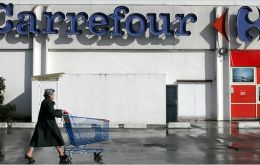
BNDES bank will not put up the 2.4 billion US dollars it pledged for the merger of Brazil's biggest retailers, Grupo Pao de Acucar and France's Carrefour, unless France’s Casino is on board, bank president Luciano Coutinho said in a local magazine.
-
Wednesday, June 8th 2011 - 23:32 UTC
Brazil unveils plan and incentives to boost ethanol production
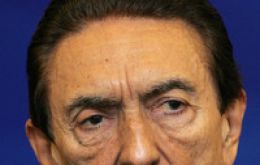
Brazil's government unveiled new financing and other incentives for sugar cane ethanol production, vowing to work closely with the private sector to boost production in an industry that has struggled recently despite its immense promise.
-
Tuesday, May 31st 2011 - 07:47 UTC
Brazil plans massive infrastructure investment in next four years
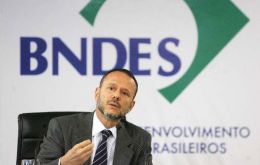
Brazil’ president of the Economic and Development Bank, BNDES, Luciano Coutinho said that the country’s investment rate in the coming four years will be equivalent to 23% of GDP, sufficient to ensure a sustained robust long term growth of Latin America’s largest economy.
-
Wednesday, May 25th 2011 - 06:44 UTC
Brazil plans to invest heavily in wind farms natural gas fired plants

Brazil which gets about 80% of its energy from hydroelectricity is considering a record investment of 4.1 billion Real (2.5 billion USD) for wind farms this year to diversify its power supply.
-
Thursday, May 19th 2011 - 10:40 UTC
Opposition call for disclosure of twenty-fold increase in Brazil’s chief of staff assets
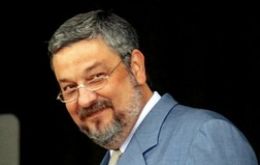
Revelations of a several times surge in the personal wealth of Brazilian government's influential chief of staff have triggered controversy and could drag on and become a major headache for President Dilma Rousseff.
-
Tuesday, April 19th 2011 - 03:51 UTC
What is behind Brazil’s high rates: loose fiscal policy, low savings or politics
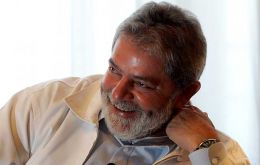
With Brazil’s benchmark interest rate at 11.75% and prospects of further increases Latin America’s largest economy poses a challenge to economists and analysts. The answers are not only economic but also political.
-
Tuesday, March 29th 2011 - 17:54 UTC
Brazil calls on IDB to speed the planned 70 billion US dollars capitalization
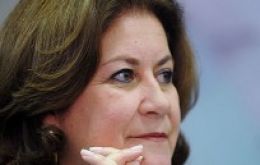
Brazil's Planning Minister Miriam Belchior pressed the Inter-American Development Bank, IDB, to move quickly with its planned 70 billion US dollars capitalization to expand the reach of projects in Latin America.
-
Thursday, February 17th 2011 - 01:58 UTC
Brazil injects 27 billion USD to subsidized-loans development bank
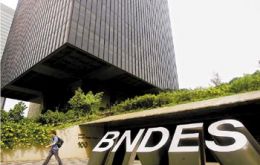
Brazilian state-run development bank BNDES will receive at least 45 billion Real or 27 billion US dollars from the government to extend its program of low-cost loans for supporting company investments in capital goods, local media reported this week.
-
Friday, August 6th 2010 - 00:34 UTC
IMF praises Brazil’s “carefully calibrated” policies and forecasts 7.1% growth

The International Monetary Fund reiterated its forecast for Brazil’s economy to expand 7.1% this year, as result of capital inflows and the expansion of credit. However the IMF also cautioned about the official credit policy of the country’s development bank.
